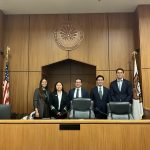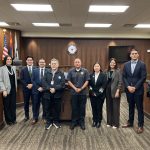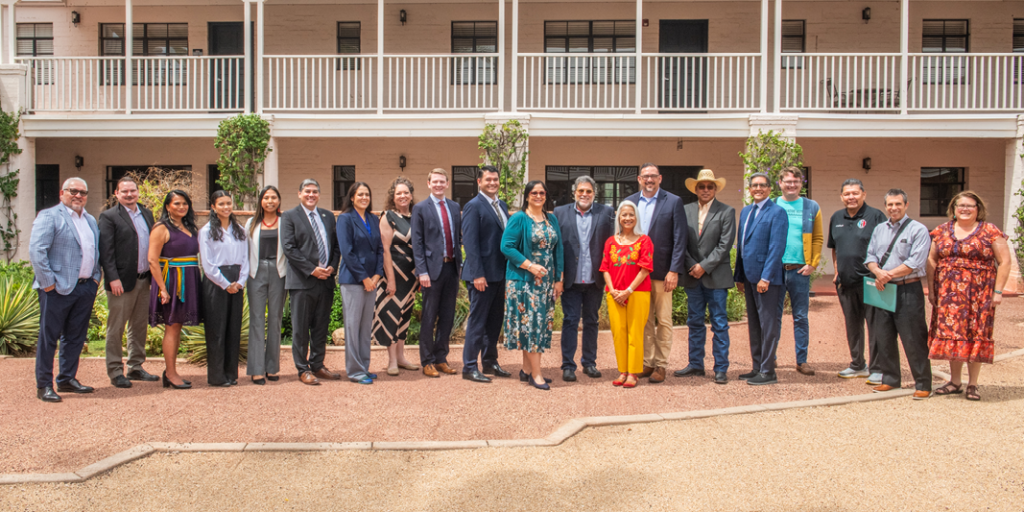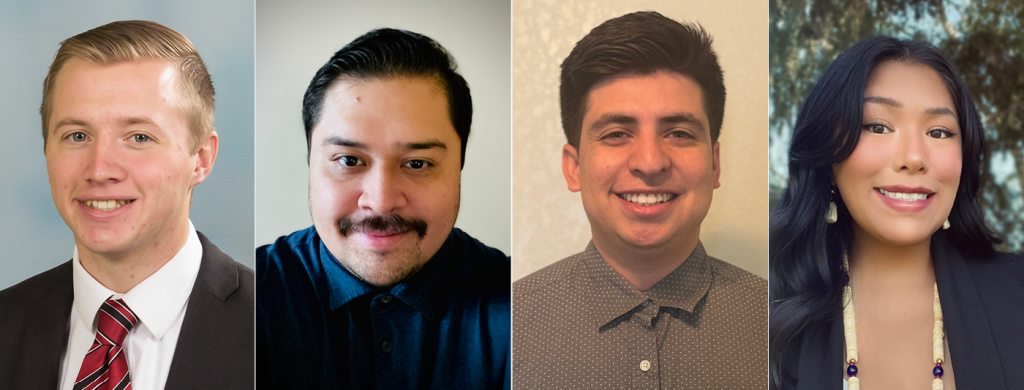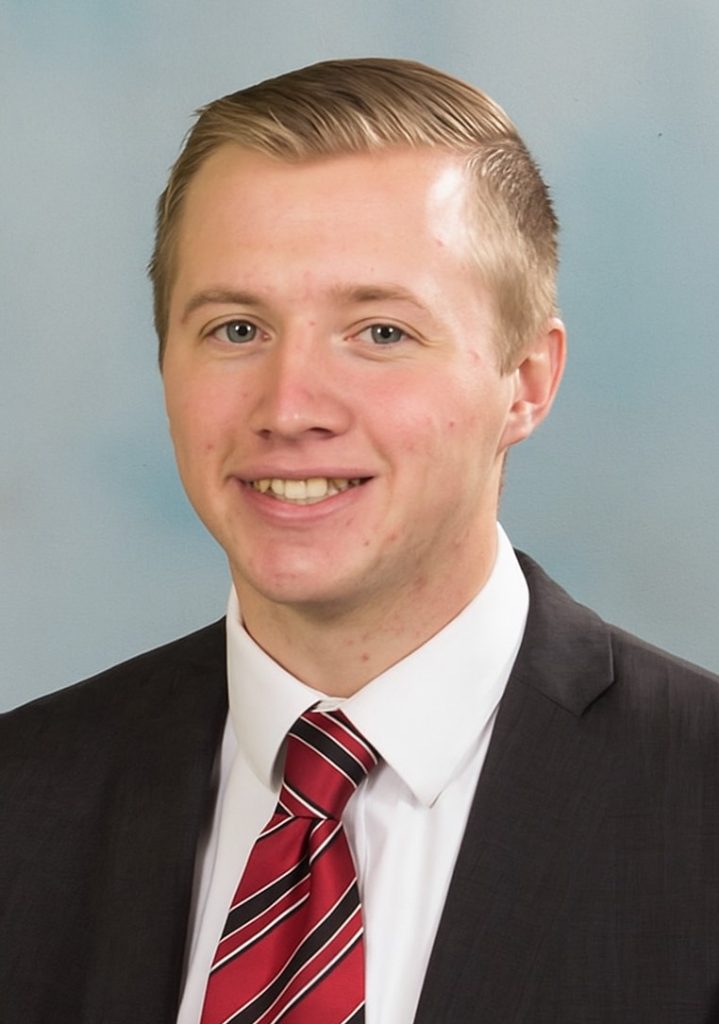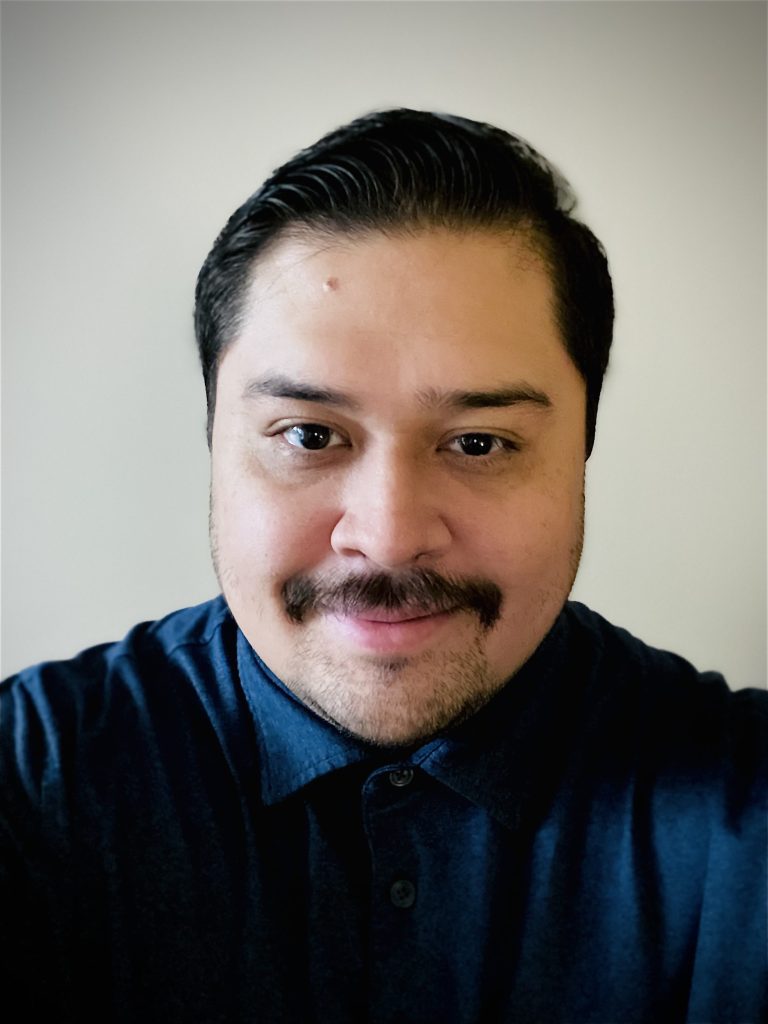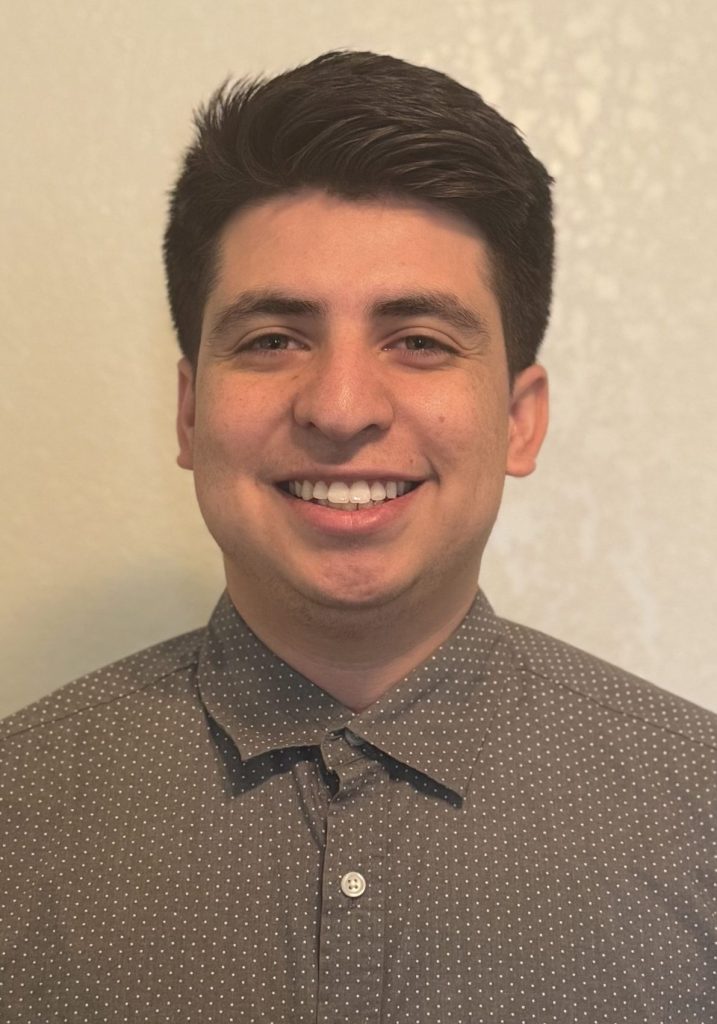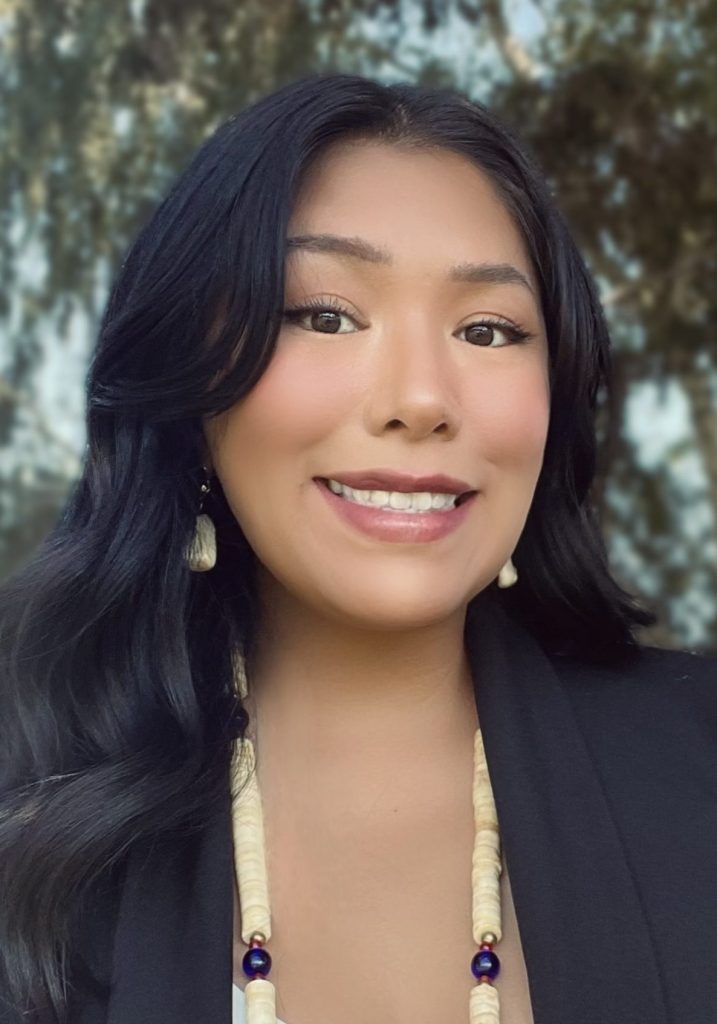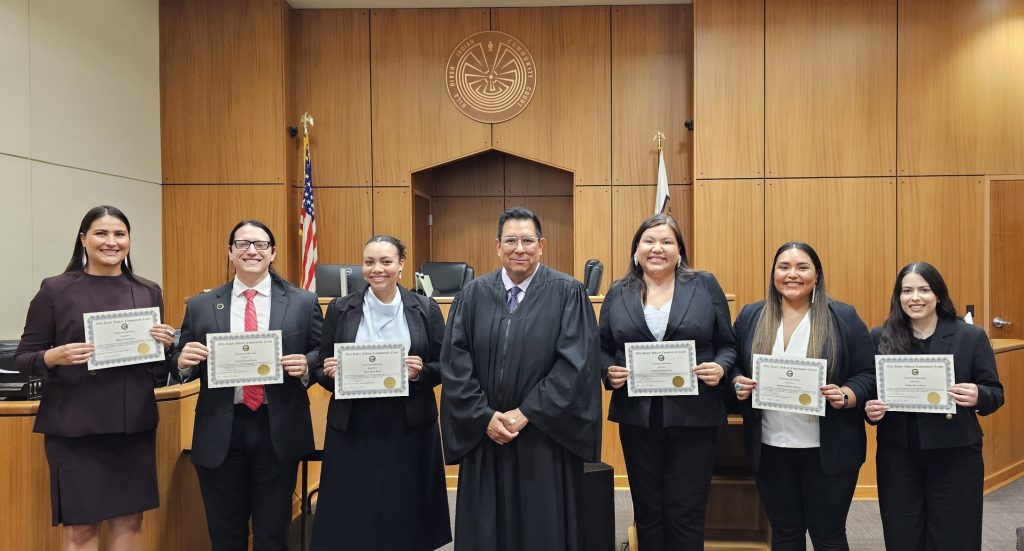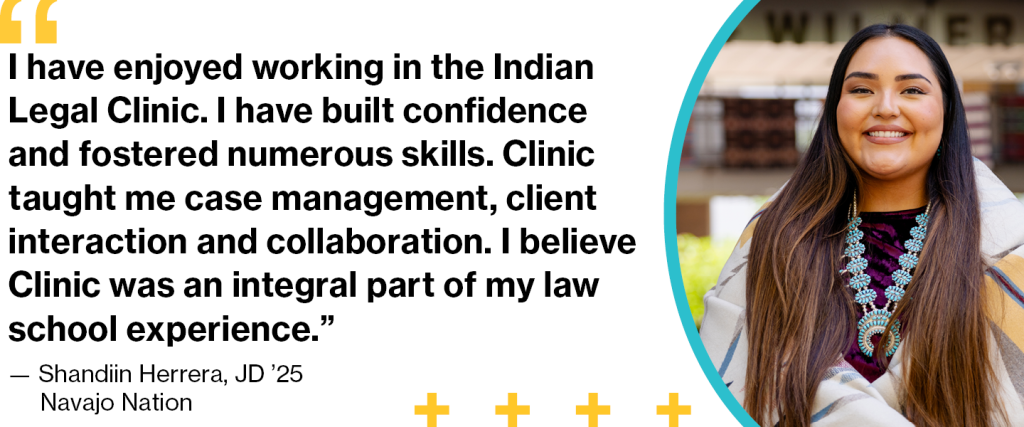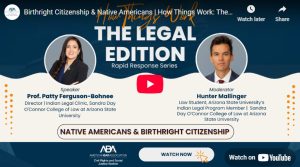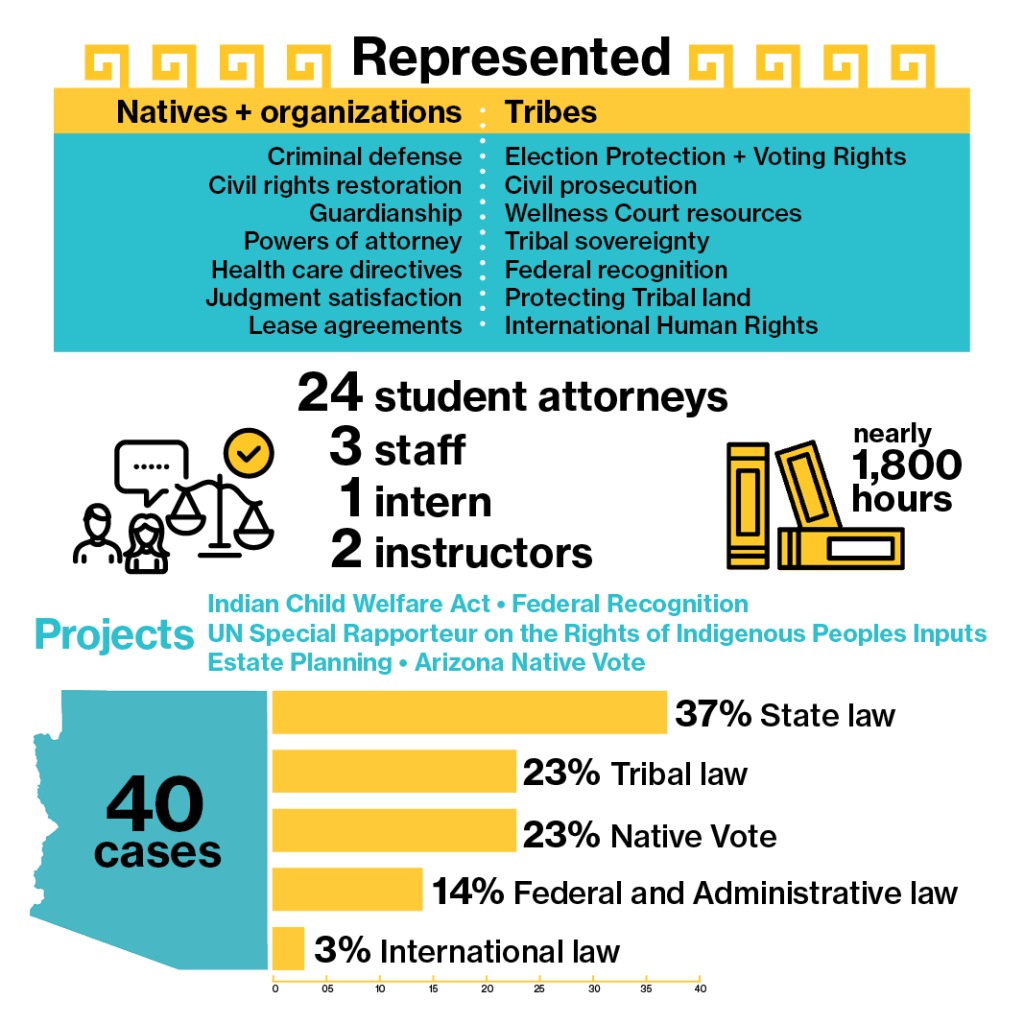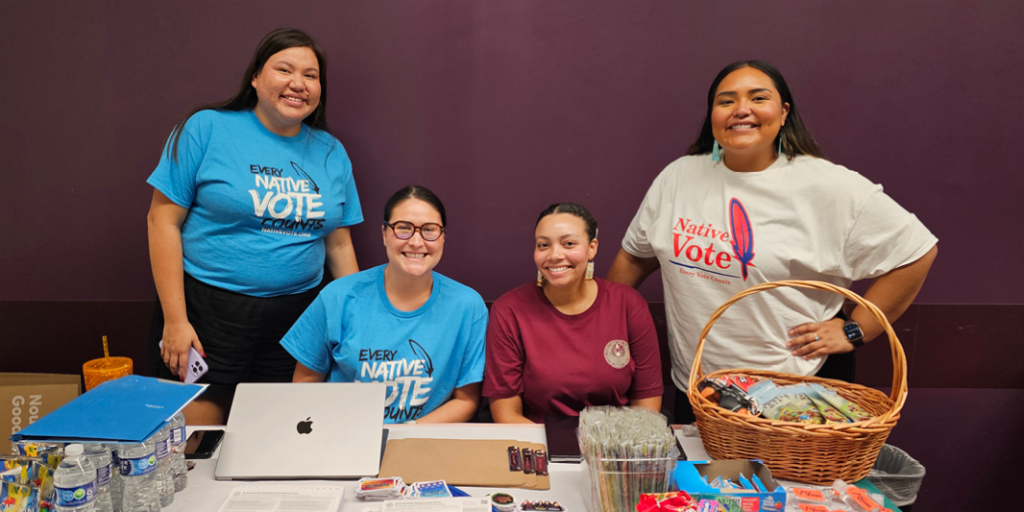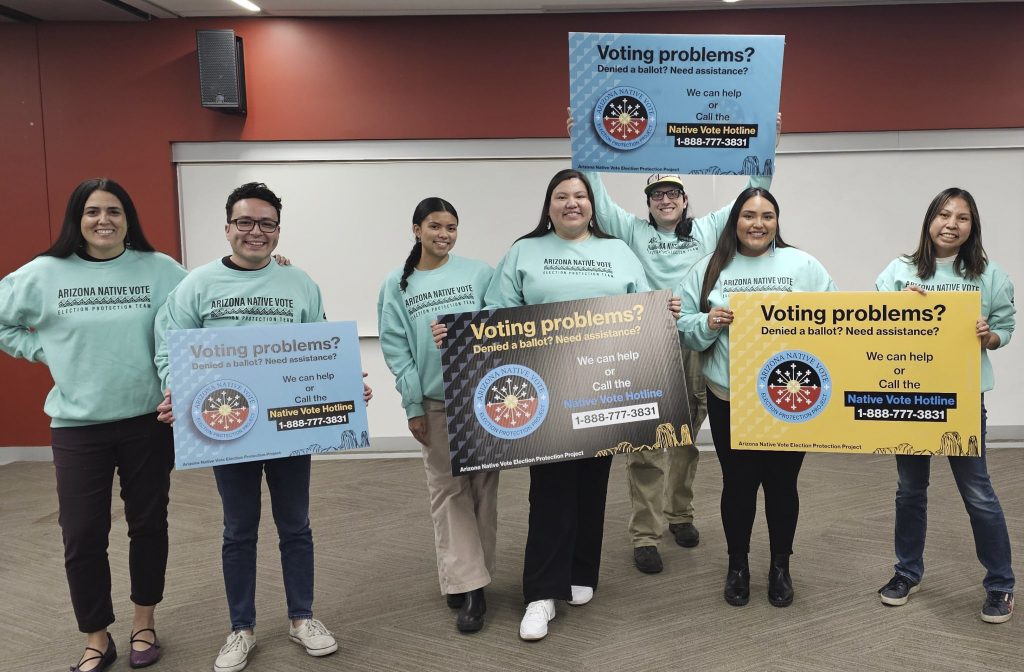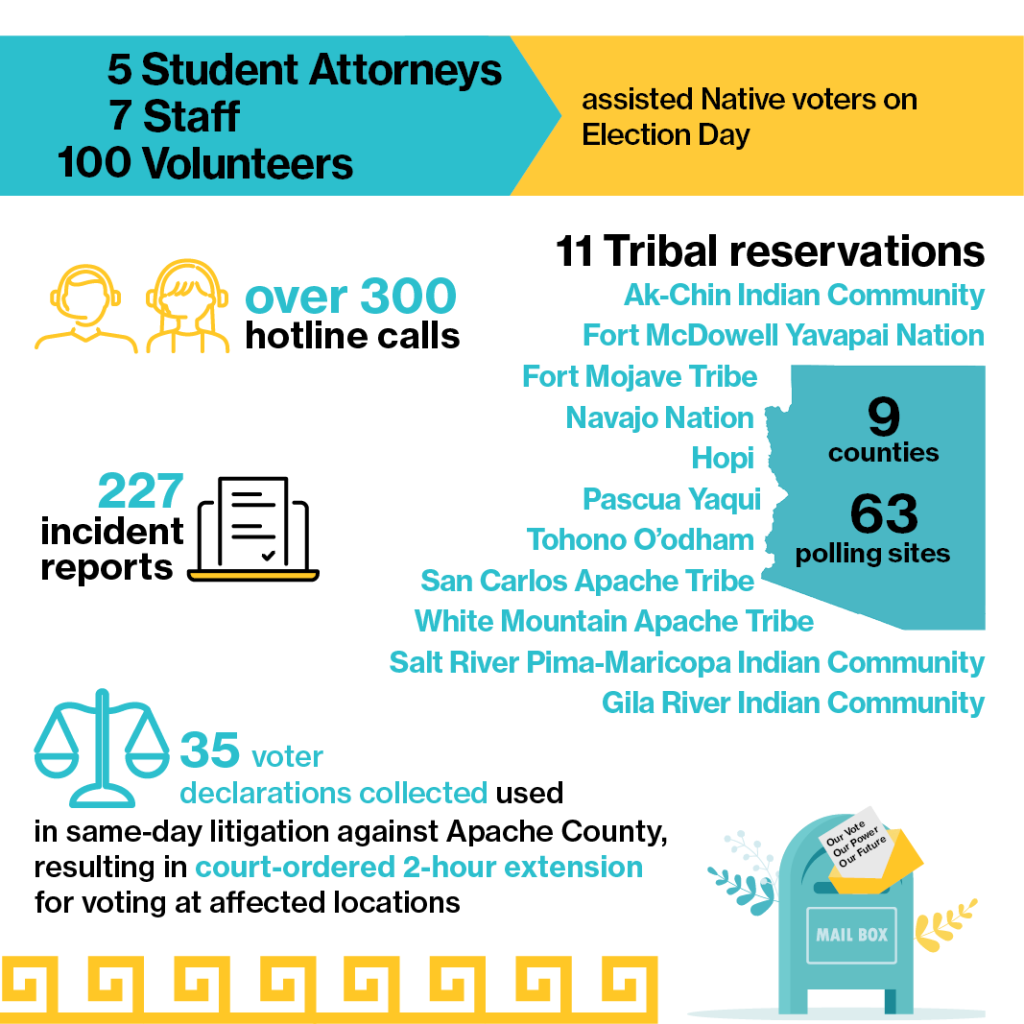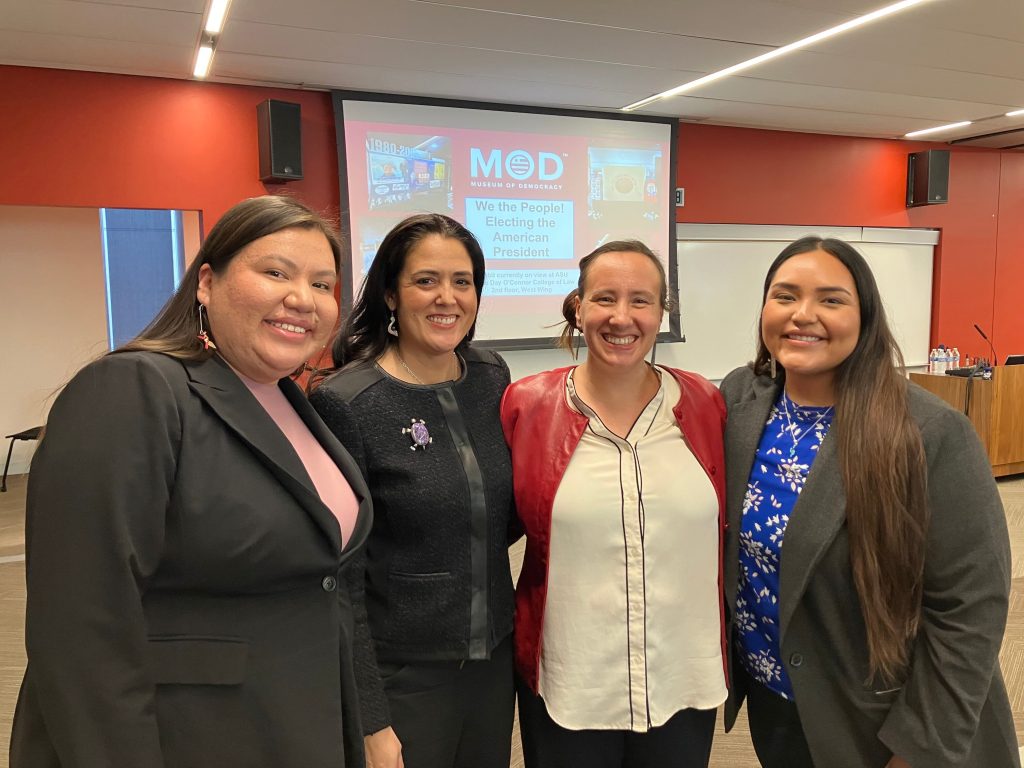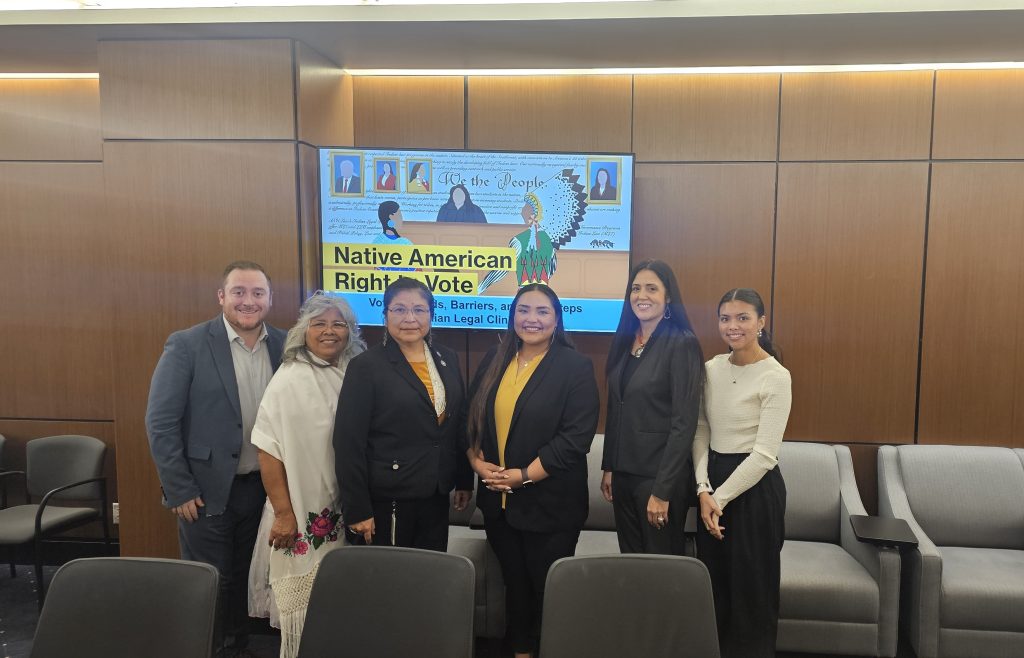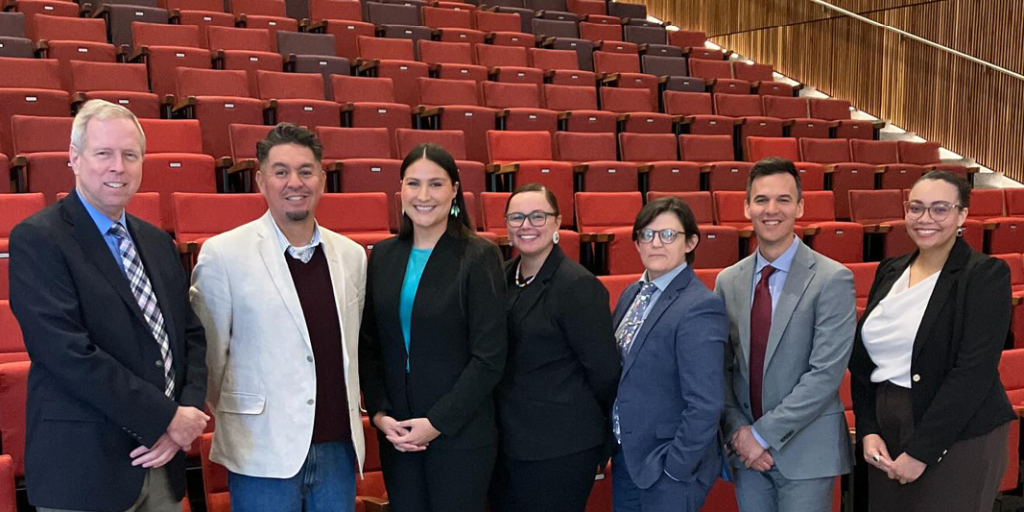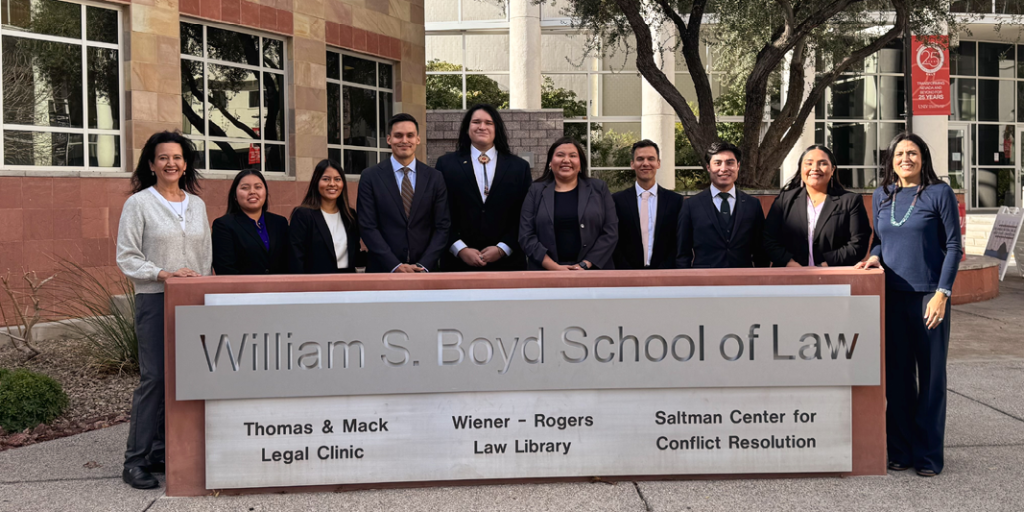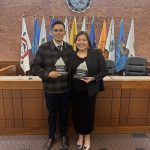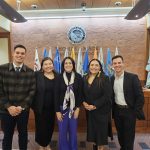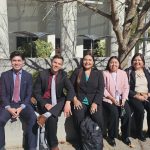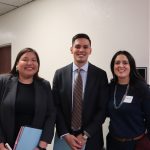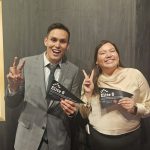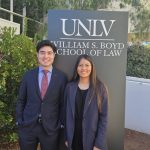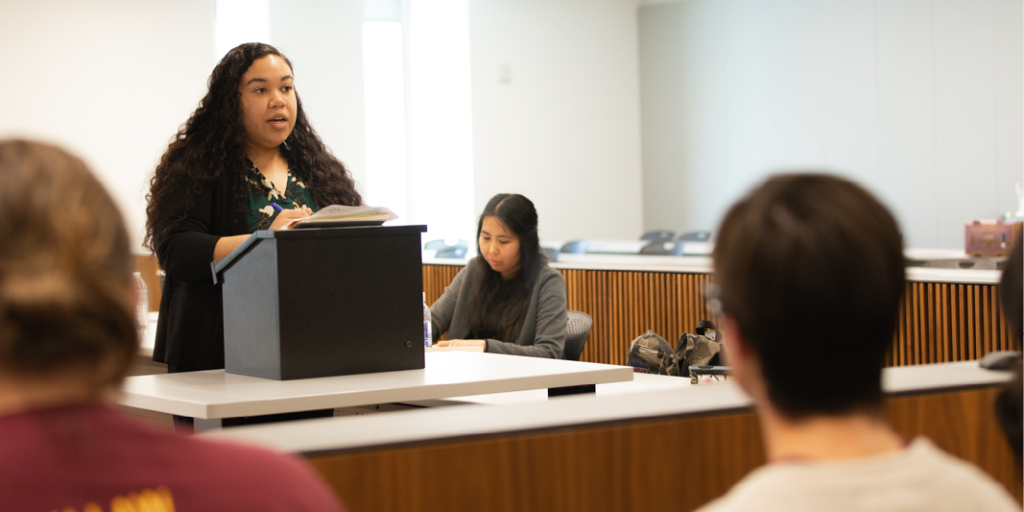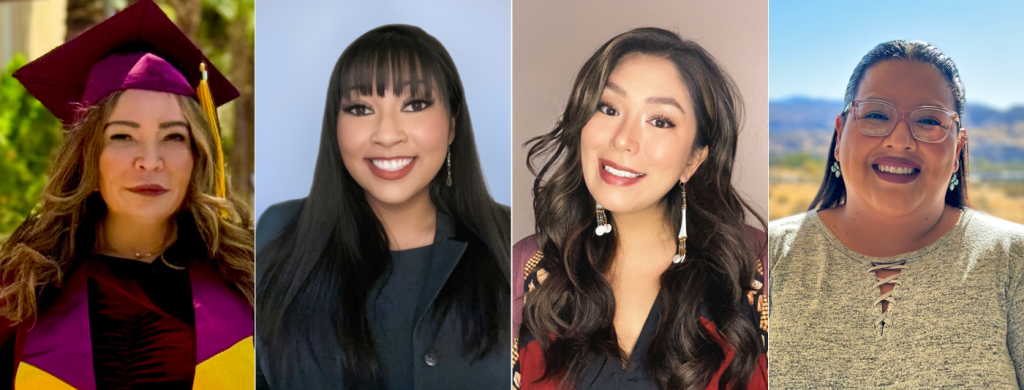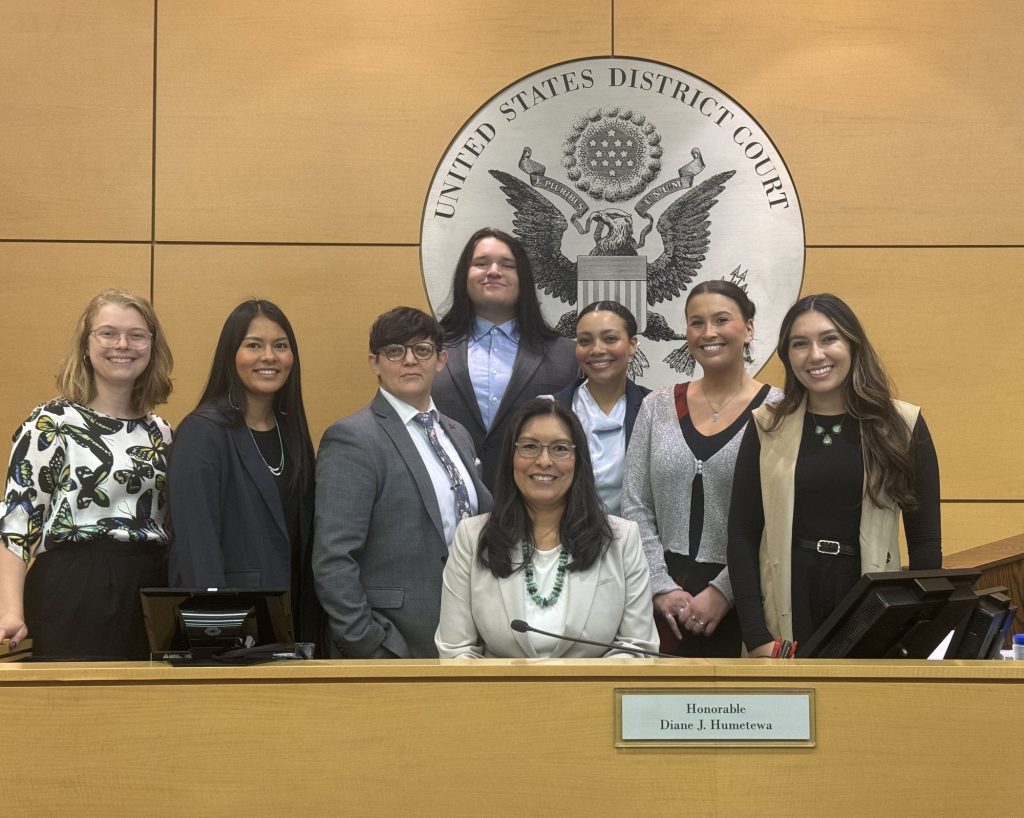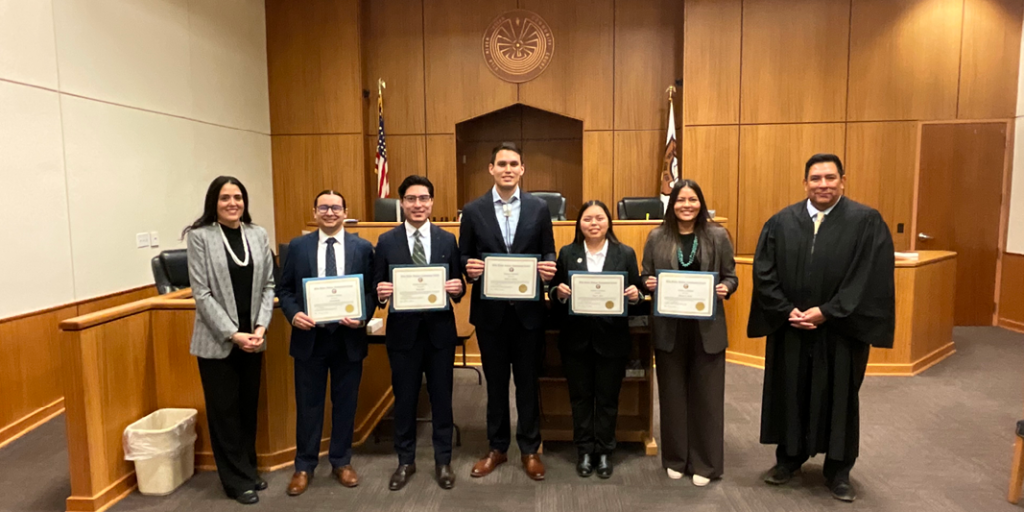
To kick off the spring semester, Professor Patty Ferguson-Bohnee and Indian Legal Clinic students Jerimy Billy, Angel Nosie, Justice Oglesby, Crispin South and Monique Tsosie traveled to the Ak-Chin Indian Community Tribal Court in Maricopa, Arizona, and the Gila River Indian Community Court in Sacaton on Jan. 30. The visit marked the beginning of the students’ hands-on legal training, where they will work directly with real clients through the clinic.
At the Ak-Chin Indian Community Court, students met with Prosecutor Raymond Vaca (’06) and pretrial officer Xavier Rojas, who provided an overview of court proceedings and shared insights from their legal careers.
Students also met with Chairman Gabriel Lopez and Ammon Orr (’16). Chairman Lopez spoke about the Tribe’s history, leadership’s role in advancing community interests, the Tribe’s successes and the importance of preparing the next generation to protect its sovereignty and legacy. Orr shared his journey in the legal profession and his work as a prosecutor serving tribes.
At the Gila River Indian Community Court, student attorneys took an important step in their legal careers as they were sworn in by Chief Judge Anthony Hill (’06). Judge Charles Aragon led a tour of the court, introducing students to judges and staff and offering a behind-the-scenes look at the court’s operations.
“I’m excited for the clinic and the opportunity to gain practical experience,” said third-year law student Nosie. “Taking the oath and being sworn in is especially meaningful — it’s something I’ve never been exposed to before. Experiencing it firsthand and beginning to practice like a lawyer makes me excited for the future.”
The Indian Legal Program extends its appreciation to the Ak-Chin Indian Community and the Gila River Indian Community for their continued support and partnership in educating the next generation of Tribal advocates.

